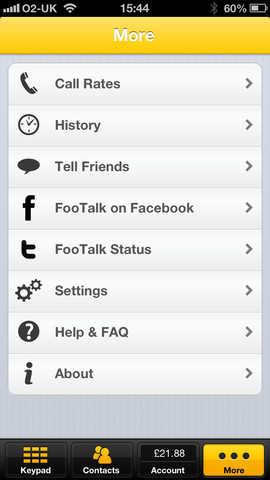Why basic smartphones will win in the race for 'the next billion' users
Is Nokia onto something?
Once it's dominated China – something that's predicted to achieve next year – Lenovo and Baidu are off to Brazil where smartphone penetration is a mere 14%.
Can smartphones in developing countries easily access the internet?
No, and it's all about infrastructure – or lack of. "Across Europe you will see dozens of ISPs competing for customers, there are peering arrangements in place between them to help maximise Internet traffic efficiency both domestically and internationally, and the resulting savings are passed to the customers," says Axel Pawlik, managing director of the RIPE NCC, a Regional Internet Registry that allocates IP numbers to its members in Europe, the Middle East and parts of Central Asia. "The developing world is often a very different picture – Internet connection can be unstable and slow, and often limited to certain geographic regions."
Countries on the east coast of Africa were physically cut-off from the internet until 2009, only able to connect via satellite as there were no submarine cables linking to global networks. Even now much Internet traffic in Africa has to leave the country in order to switch to another network within the same country, making the internet prohibitively expensive.
Why do people in in developing countries want smartphones?
A major reason is WiFi and calling apps."Calling apps have made cheaper smartphones far more enticing by undercutting feature phones, offering longer term savings and greater coverage in exchange for a slightly larger upfront cost," says ex-Virgin Media founding executive Graeme Hutchinson, who now runs Ghost Telecom, producer of free-calling iOS & Android app FooTalk, which combines Skype-type VoIP with very low cost standard phone number calling. It even does Facebook calling, making it the world's first app to offer global Facebook VoIP – before even Facebook itself.

Apps like FooTalk allow smartphone owners to use the growing availability of Wi-Fi to fill-in the gaps in a developing country's mobile infrastructure, which is in turn changing the global focus of telecoms companies. "For operators, developed markets are at over saturation point and we're seeing a reduction in new user take-up," says Hutchinson. "Operator growth therefore has to come from emerging and developing markets. With data services central to the future of mobile, operators' traditional geographical boundaries are disappearing and they are looking to global strategies that embrace the developing world as a key part of their plans."
Premium vs cheap smartphones
"The developing economies are more price sensitive than the UK as just a difference of £10/$15 USD when multiplied into rupees or pesos starts to seem a lot more – and users who aren't particularly tech savvy will be more persuaded by price," says Chadha.
Mohammed Hussain, MD of mobile phone accessories retailer, Mobile Fun predicts that Google and Amazon will take a big stake in the low end segment of smartphones and tablets, with a Kindle Fire-style subsidised low-end mobile device possible. "We see the smartphone market evolving to offer two extremes in terms of handsets," he says. "There will be both premium and low-end handsets, leaving a dearth of handsets in the middle."
Sign up for breaking news, reviews, opinion, top tech deals, and more.
It's in the low-end sector that 'the next billion' handsets are destined, and the race to provide them could birth a new operating system – with Mozilla's Firefox OS one of them. It's due to launch this year in Latin America via Telefónica's networks, and it's a direst response to the closed app-ecosystems of Apple and Android.

Why don't Apple and Android suit developing countries?
"The current App store model present in the West, which requires consumer credit or debit card details, is not one that can be easily transferred across into emerging markets," says Marco Veremis, CEO at Upstream, which conducted the Emerging Markets Mobile Attitudes report.
It found that the lack of banking facilities available to consumers in these markets led to 42% preferring to pay for them via their mobile operator, so it's mobile operators, not platform owners, that have the advantage when developing apps and content. That explains why an open platform like Firefox OS makes sense in the developing world – and why Telefónica is so keen on it.

Jamie is a freelance tech, travel and space journalist based in the UK. He’s been writing regularly for Techradar since it was launched in 2008 and also writes regularly for Forbes, The Telegraph, the South China Morning Post, Sky & Telescope and the Sky At Night magazine as well as other Future titles T3, Digital Camera World, All About Space and Space.com. He also edits two of his own websites, TravGear.com and WhenIsTheNextEclipse.com that reflect his obsession with travel gear and solar eclipse travel. He is the author of A Stargazing Program For Beginners (Springer, 2015),